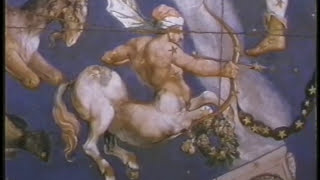
EINSTEIN AND THE CULT OF CELEBRITY
by David Drew
Albert Einstein is a cultural phenomenon. He has enjoyed scientific celebrity status for decades and his face is still regularly splashed across electronic and print media. He also has a lot of critics, although you don’t hear too much about them from popular science sources. Ironically, I sometimes wonder if he would be more sympathetic to his detractors if he were still around today, and I say that in all seriousness.
“I am no Einstein,” he once joked in response to the adulation that began in his lifetime.
Most famous for General and Special Relativity, Einstein (1879-1955) was awarded the Nobel Prize in 1921 for his work on the Photoelectric Effect. In 1905, the year he recalls fondly as his annus mirabilis (marvelous year), he earned his doctorate for a dissertation entitled “A New Determination of Molecular Dimensions.” These facts are worth committing to memory if you ever do quiz contests.
Everyone should be respected as an individual, but no one idolized.
Albert Einstein
The rise and rise of pop science
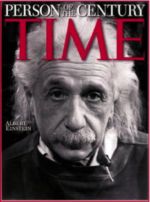
According to Wikipedia (yes, I know), the German-born “theoretical physicist is widely ranked among the greatest and most influential scientists of all time.” Despite his cult hero status, however, growing numbers do not even regard him as a scientist, let alone a great. The clue is in the two words in bold. Theoretical physics rests almost entirely on mathematical modeling, unlike classical science which emphasizes experimentation and observation.
To the extent that the laws of mathematics refer to reality, they are not true; and to the extent that they are true, they do not refer to reality.
Albert Einstein
To summarise this philosophical viewpoint — one common among critics of Einstein and, apparently, Einstein himself — math should be ancillary, not dominant. Making science subservient to mathematics is putting the cart before the horse, let alone hubristic. Just think Epicycles, where the mathematical model could make accurate predictions up to a point, yet failed to reflect the underlying reality. Heavier-than-air flight was also considered impossible a little over one hundred years ago…and they had the math to prove it.
Science vis-à-vis mathematics
The importance of mathematics is not denied. Again, the point is that math should follow the science rather than building the science on idealised mathematical models and selectively interpreting data to fit. Furthermore, current models rely on free variables to balance the equivocations, I mean equations. Dark Matter and Dark Energy are the oft-cited Achilles heel of pop science. They remain undetected after decades of searching despite allegedly comprising roughly 90% of the universe!
Those who pretend there isn’t any debate to be had on the dominant role of mathematics in science have a problem but don’t take my word for it.
Physics is mathematical not because we know so much about the physical world, but because we know so little.
Bertrand Russell
“Today’s scientists have substituted mathematics for experiments, and they wander off through equation after equation, and eventually build a structure which has no relation to reality.”
Nikola Tesla
Oh, and here is another one from Einstein himself:
Since the mathematicians have invaded the theory of relativity, I do not understand it myself anymore.
Albert Einstein
Even if you think Einstein had his tongue planted firmly in his cheek at the time, I would suggest many a true word is spoken in jest. Philosophical issues aside, Stephen Crothers has done a fine job exposing the flaws and leaps of faith in so much math-based cosmology. A pre-eminent mathematician, he is counted among the most competent critics of General Relativity, the Big Bang, and Black Holes et al.
Hawking was a pop scientist who ipso facto contributed nothing of value to science. Einstein was the first pop scientist; promoted at some time or another by that other entertainer, Charlie Chaplin. Hawking and the Einstein cult have ruined physics and astronomy, turning them into circus freak shows. Science cannot just wait until they all disappear. Whilst they are active they are ruining young minds entering science, to be caught up in the same rat race, producing more pop scientists. The cycle must be broken.
Stephen J. Crothers
Yes, I think it is safe to put Crothers in the critical of Einstein club. Herbert Dingle, another noted critic of General Relativity, served as president of the Royal Astronomical Society between 1951 and 1953. In his 1972 book, Science at the Crossroads, he had this to say:
“ . . . Lorentz, to justify his transformation equations, saw the necessity of postulating a physical effect of interaction between moving matter and æther, to give the mathematics meaning. Physics still had de jure authority over mathematics: it was Einstein, who had no qualms about abolishing the *æther and still retaining light waves whose properties were expressed by formulae that were meaningless without it, who was the first to discard physics altogether and propose a wholly mathematical theory . . . ”
Too bad that, for the time being at least, complex and esoteric math shield so much institutional science from robust scrutiny.
Behind every great man . . .
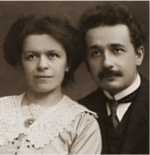
Behind every great man, there is a great woman, or so the saying goes. Einstein met his first wife, Mileva Maric, at the Polytechnic Institute in Zurich in 1896. While there is some debate among historians about the extent of her influence, it is generally accepted that she collaborated with him on some early papers.
By the end of their classes in 1900, Mileva and Albert had similar grades — 4.7 and 4.6 respectively, with the exception of applied physics. Here, Mileva scored top marks, 5, but Albert only 1. She excelled in this department, but it was already clear that experimental work was not Einstein’s thing!
Space balls
Isaac Newton admitted he did not understand the mechanism behind gravity and had to settle for describing it mathematically.
But hitherto I have not been able to discover the cause of those properties of gravity from phenomena, and I frame no hypotheses.
Isaac Newton
Einstein ‘solved’ this problem by factoring in time as an additional dimension — the fourth dimension — resulting in alleged space-time curvature, but has he effectively replaced a mathematical description with a mathematical abstraction?
There is no model of the theory of gravitation today, other than the mathematical form.
Richard Feynman
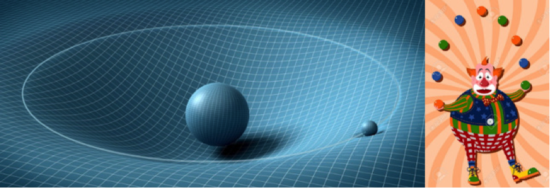
In classrooms today, Einstein’s ‘solution’ is sometimes illustrated by rolling balls around on suspended blankets, with the smaller balls being attracted to the larger mass in the middle as if falling into the well of spacetime. This, self-evidently, relies on gravity as its own explanation. It’s a classic case of circular reasoning!
See Crothers Is Spacetime Really a Four-Dimensional Continuum? and Faulty Foundations.
Reification versus reality
Time dilation is often cited as conclusive evidence for Special Relativity, but could bias confirmation be the significant factor here? In 1972 Hafele and Keating performed experiments that purported to confirm Special Relativity. The ‘evidence’ was derived from the differences in time recorded by caesium clocks transported in aircraft moving east and west. However, the results were contested by Dr AG Kelly after examining the raw data. He concluded that the published outcome had to be averaged in a biased way to claim such a high degree of precision. Also, Louis Essen, the inventor of the atomic clock, published an article in which he discussed the inadequate accuracy of the experiments. Essen concluded that the theory was no more than a “bunch of contradictory assumptions together with actual mistakes.”
It is important to add a caveat to the above. When time contraction and length dilation can be observed, it doesn’t lend credence to the fantastical space-time framework.
Poincare’s advancement of Lorentz’s æther is mathematically indistinguishable from “Special Relativity,” while being utterly opposed to Minkowski’s diagrams and formalization of “isotropic constancy” found in the space-time metaphysics regime.
Anti-relativity.com
GPS is often cited as conclusive proof for general relativity, but this is a fallacy, too. According to the US Naval Observatory:

“The Operational Control System (OCS) of the Global Positioning System (GPS) does not include the rigorous transformations between coordinate systems that Einstein’s general theory of relativity would seem to require.”
Adjustments are made, but this is because clocks at high altitudes tick faster resulting from variations in air density, not gravity. (The air is denser closer to the Earth’s surface.) Atomic clocks are also sensitive to temperature and pressure changes in their orbit.
Gravitational lensing?
Every schoolchild knows that if you put a stick in water it will appear to bend due to light refraction. The atmosphere of stars and planets, denser than the space around them, also bends light. Common sense dictates as much. Bizarrely, however, pop scientists have yet again attempted to interpret this phenomenon within the framework of general relativity. Fortunately, Dr. Edward Dowdye has put them right. A physicist and laser optics engineer formerly with the NASA Goddard Space Flight Center, he has derived a mathematical solution for lensing using refraction; not GR. Gravitational Lensing in Empty Vacuum Space Does Not Take Place.
‘KISS — Keep It Simple Stupid’ is the expression that springs to mind.
I have deep faith that the principle of the universe will be beautiful and simple.
Albert Einstein
Into the darkness
In addition to Dark Matter, Dark Energy, and Black Holes are also talked about today as if they were real. Consensus scientists who describe them as one of the most successful predictions of relativity choose to ignore the fact that Einstein dismissed the idea. In a 1939 paper from the Annals of Mathematics, he concluded that the Black Hole hypothesis was ‘not convincing’ and the phenomena did not exist ‘in the real world’. The paper is now hidden behind a paywall, but there is also a reference to it at History.com.
The black hole concept originally began as a place-holder because we witness compact energetic activity at the centre of galaxies … and because theoretical physicists work with only one tool in their box — gravity. Well, when you are a hammer, everything looks like a nail.
Bizarrely, pop science describes black holes as points with zero volume, infinite density, and infinite mass! Think about that. Does the concept sound credible, or more like another mathmagical abstraction?
Claims that a black hole has been pictured for the first time at the centre of Galaxy M87 are at best contentious. The straightforward plasma focus approach makes more sense on every level.
Spooked

Einstein coined the term Spooky Action at a Distance (spectate Fernwirkung), latterly referred to as Quantum Entanglement. It seems that one particle can ‘know’ something about another particle instantaneously over a vast distance. This phenomenon is problematic because it breaks the speed of light ‘barrier’, supposedly the upper-speed limit of the universe. Because it contradicts Special Relativity, Einstein was compelled to issue a traffic violation.
“I cannot seriously believe in it because the theory cannot be reconciled with the idea that physics should represent a reality in time and space, free from spooky action at a distance.” Albert Einstein in a letter to Max Born, 1947 SAD has been confirmed post-Einstein. As a result, we have seen numerous attempts to reconcile it with SR via the mathematical mysticism known as quantum physics. Quantum superposition conjectures that particles can exist in different states simultaneously, much like the criminal who claimed to be at home when he was seen robbing a store. Science fiction can’t hold a candle to it, that much is certain, but I’ll take a step back. I’m not saying quantum physics is entirely without merit, just that it’s highly speculative, too.
The last word
To be fair to Einstein, he was a modest man and a reluctant hero. The truth is that others ran with his ideas, and ran, and ran. Today, they are still running around like dogs sniffing each other’s butts. Typical of this breed is the British professor Dr Brian Cox, below left, who made the seamless transition from pop star to pop scientist. He was a keyboard player with D:Ream in the 1990s. They had a UK number-one hit with “Things Can Only Get Better”. I’m not saying Cox is any worse than any of the other talking heads paraded on television today, but things don’t seem to be getting any better. Daring to question relativity remains an anathema, and doing so is liable to draw comparisons with flat earth quackery.
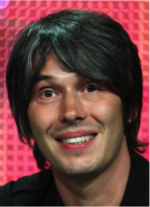
Cox is the UK’s answer to America’s Neil deGrass Tyson. Several luminaries regard him as the best man to front BBC scientific programming moving forward, which reminds me of Fred Hoyle’s famous words. Another former Royal Astronomer, Hoyle was critical of Peer Review and the Graduate School system and their abject failure to encourage independent thinking. Prophetically, he summed up: “The road ahead is hammered out!”
Unthinking respect for authority is the greatest enemy of truth.
Albert Einstein
A famous line from Shakespeare’s Twelfth Night seems apposite: some are born great, some achieve greatness, and some have greatness thrust upon them. I submit that Einstein belongs in the latter category. He was more victim than genius, at a time when science took a wrong turn and mathematical modelling began to take precedence over traditional empiricism.
Doubt is supposed to be at the heart of good science. The funny thing is, though, while Einstein’s fan club hung on almost every word he uttered, they ignored his many doubts.
The last word belongs to him.
You can imagine that I look back on my life’s work with calm satisfaction. But from nearby it looks quite different. There is not a single concept of which I am convinced that it will stand firm, and I feel uncertain whether I am in general on the right track.
Albert Einstein
Addendum
Contrary to popular misconception, the Michelson-Morley experiment didn’t sound the death knell for æther physics. It did NOT show a null result, only speeds less than expected for æther drift. Moreover, a return to the æther model of classical physics would gel neatly with the emerging plasma universe paradigm. (The æther can be thought of as a fine elastic medium or plenum that permeates everything.)
Einstein cast the æther aside, but Maxwell’s theory of electromagnetism requires it . . . and if light is a particle or quanta moving through a vacuum, as Einstein proposed, then how can it display wavelike properties? In other words, does the æther also begin to explain the wave-particle duality ‘paradox’?
I consider this extremely important. Light cannot be anything else but a longitudinal disturbance in the æther, involving alternate compressions and refractions. In other words, light can be nothing else than a sound wave in the æther.
Nikola Tesla
Significantly, Newton viewed gravity as an instantaneous force before Einstein conceptualised it as a speed-limited property of space. Why Newton was right.
Einstein and his fan club love thought experiments, so here is another one: Does spooky action at a distance lend support to ‘discredited’ aether models? Think about it like this. Imagine light as particles sitting on a giant conveyor belt. The belt and the particles travel slowly relative to the vastness of the universe. However, when turned on, the motion of the belt is instantaneous at either end. Could the hypothesised æther act something like a conveyor belt in this respect? Albeit we are talking about wave rather than linear motions.
Quote Attributions
“Everyone should be respected as an individual, but no one idolized.” Albert Einstein
https://en.wikiquote.org/wiki/Albert_Einstein
“”As far as the laws of mathematics refer to reality, they are not certain; and as far as they are certain, they do not refer to reality.” Albert Einstein
https://en.wikiquote.org/wiki/Albert_Einstein
From the German: “Insofern sich die Sätze der Mathematik auf die Wirklichkeit beziehen, sind sie nicht sicher, und insofern sie sicher sind, beziehen sie sich nicht auf die Wirklichkeit.”
“Physics is mathematical not because we know so much about the physical world, but because we know so little.” Bertrand Russell
https://mathshistory.st-andrews.ac.uk/Biographies/Russell/quotations/
“Today’s scientists have substituted mathematics for experiments, and they wander off through equation after equation, and eventually build a structure which has no relation to reality.” Nikola Tesla
Modern Mechanix and Inventions magazine, 1934, page 5
http://www.teslasociety.ch/info/mechanic/Tesla_Juli_1934_6MB.pdf
See also https://en.wikiquote.org/wiki/Nikola_Tesla
“I am acutely aware of the fact that the marriage between mathematics and physics, which was so enormously fruitful in past centuries, has recently ended in divorce.” Freeman Dyson
Missed Opportunities (1972)
https://en.wikiquote.org/wiki/Freeman_Dyson
“Since the mathematicians have invaded the theory of relativity, I do not understand it myself anymore.” Albert Einstein
The quote is reported by Arnold Sommerfeld, who knew Einstein well.
“…Lorentz, to justify his transformation equations, saw the necessity of postulating a physical..”
Full quote above. Herbert Dingle, Science at the Cross-Roads, 1972.
“But hitherto I have not been able to discover the cause of those properties of gravity from
phenomena, and I frame no hypotheses.” Isaac Newton
Isaac Newton (1642-1727) Principia (1687)
General Scholium
https://history.hanover.edu/courses/excerpts/111new.html
“There is no model of the theory of gravitation today, other than the mathematical form.”
Richard Feynman
The Character of Physical law
https://www.ling.upenn.edu/~kroch/courses/lx550/readings/feynman1-4.pdf
“I have deep faith that the principle of the universe will be beautiful and simple.” Albert Einstein
https://www.alberteinsteinsite.com/quotes/einsteinquotes.html
“Unthinking respect for authority is the greatest enemy of truth.” Albert Einstein
https://en.wikiquote.org/wiki/Albert_Einstein
From the German “Autoritätsdusel ist der größte Feind der Wahrheit.”
Another translation: Blind obedience to authority is the greatest enemy of truth.
“You can imagine that I look back on my life’s work with calm satisfaction. But from nearby it looks quite different. There is not a single concept of which I am convinced that it will stand firm, and I feel uncertain whether I am in general on the right track.” Albert Einstein
Einstein to Maurice Solovine, 28 March 1949. Quoted in the book, Einstein: A Centenary Volume, Edited by A.P. French, Harvard University Press, 1979, page 158.
Reference: https://www.physicsforums.com/threads/a-question-about-a-quote-from-einstein.532035/
I consider this extremely important. Light cannot be anything else but a longitudinal disturbance in the æther, involving alternate compressions and refractions. In other words, light can be nothing else than a sound wave in the æther.” Nikola Tesla
https://teslauniverse.com/nikola-tesla/articles/tesla-sees-evidence-radio-and-light-are-sound
YouTube video — David Drew: Einstein and the Cult of Celebrity | Thunderbolts

David Drew, who hails from the UK, has enjoyed a long interest in science, philosophy, and cosmology. He has been involved with the Electric Universe since around 2004 and published his own website, plasmacosmology.net in 2006. The purpose of his website is to provide an introduction to the emerging Plasma Universe paradigm and to explore some of the many far-reaching implications. David was the first to publish videos promoting EU ideas on YouTube and other video-sharing platforms. One of the most popular of these explores parallels with the work of the cult hero, Nikola Tesla (https://www.youtube.com/watch?v=akM9KNEv_JE). David is also known as The Soupdragon.
Ideas and/or concepts presented in Thunderblogs do not necessarily express or represent the Electric Universe Model of Cosmology or the views of The Thunderbolts Project or T-Bolts Group Inc.








